In The News
What is a 1031 exchange?
A 1031 exchange helps you reinvest your money to its maximum benefit.
September 1, 2020
Anyone planning on selling real estate should learn more about and utilize this useful strategy. It won’t take long for you to encounter a situation that involves a 1031 exchange and you’ll want to be ready for it when you come across it.
What is a 1031 exchange?
Simply stated, it is a method used to defer capital gains taxes on the sale of real property. When executing a 1031 exchange, you use the profits from the sale of an investment property immediately to purchase a different, “like-kind” property. This defers the taxes you would otherwise pay on the profits.
How to execute a 1031 exchange
The first step to opening a 1031 exchange would be to find a company that specializes in these types of deals, sometimes referred to as a “qualified intermediary”. They will hold the funds from your sale until you can reinvest them. Next, you will want to find a replacement property. Under federal guidelines, you must identify the new investment within 45 days and complete the purchase within 180 days of selling your current property. Finding a new property before selling reduces the risk of missing these deadlines. Most investors use a real estate agent to help them find new properties so they can find and close on new properties more efficiently. At this point you are ready to sell your current property. The proceeds of the sale will go into a holding account managed by your chosen intermediary. You can then use those funds to purchase your new investment within the deadlines mentioned above. Once all of this is done, you will be able to successfully claim your 1031 exchange and defer the capital gains taxes on your sale!
Things to be aware of
– Both the property sold and the new purchase must be “like-kind” or the same type of property. This is defined broadly and mainly means that the property sold and the property purchased must be investments – you cannot sell an investment property and use the profits to buy a primary residence, for example. – It is possible to purchase multiple properties with the proceeds from one sale. – The replacement property, or properties, must be worth the same amount or more than the property being sold. If the new purchase is worth less than the sold property, you will be taxed on the difference. – You cannot touch any portion of the funds you are reinvesting. This is why you need a qualified intermediary. Also, keep in mind that you must initiate the 1031 exchange claim before any transactions take place.
Should you use a 1031 exchange?
For most real estate investors, the answer is yes! If you are selling real property and are planning on continuing to invest, you will want to open a 1031 exchange. Without it, you could be taxed up to 20% of the profits from your property sale. Possible reasons for not using a 1031 exchange are: if you wouldn’t need to pay capital gains tax anyway (people in a low tax bracket or those selling at a loss), if you are cashing out your investments or if you are choosing to invest in something that is not real-estate related. Otherwise, defer those taxes and make the most out of your money!

Contact Jody Jones
Get In Touch

Jody Jones, CCIM
1075 East Hollywood Avenue
Salt Lake City, Utah 84105
jody@acresutah.com
801.577.2175
AREAS WE SERVE:
Salt Lake City
Downtown | 9th and 9th | Granary District
Sugarhouse | Cottonwood Heights | Millcreek | Murray | West Valley | South Jordan

